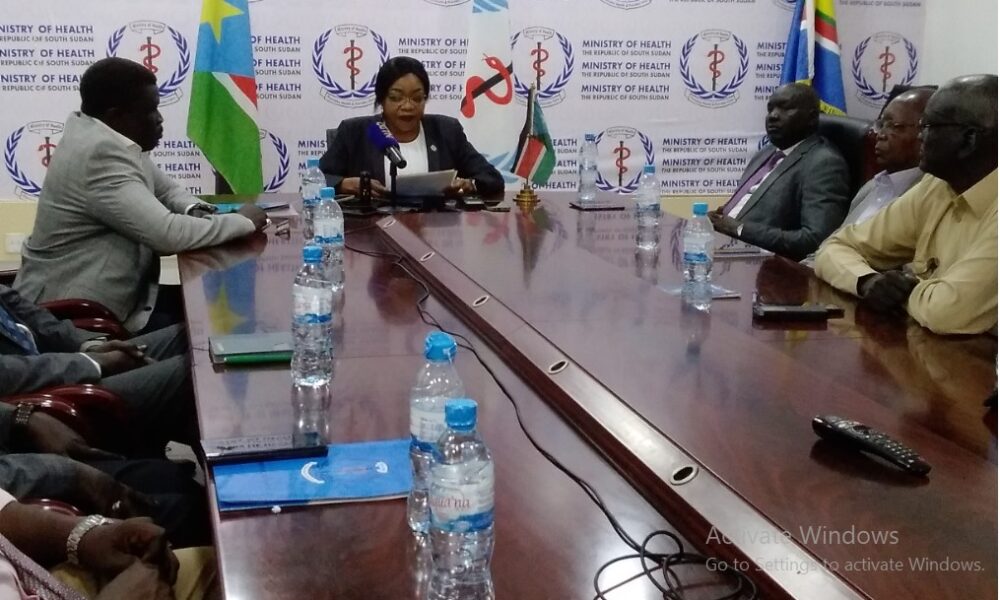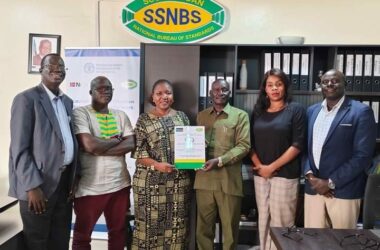By Kei Emmanuel Duku
As South Sudan grapples with increasing cancer burden amidst fragile health system, an expert advocates for establishment of a specialized institute.
This call highlights the critical need for dedicated resources and infrastructure to combat a disease often diagnosed too late, placing a heavy burden on patients and their families.
Dr. Michael Madingo emphasized that while some cancer cases are managed at Juba Teaching Hospital, a significant number of patients still require further treatment or chemotherapy outside the country, which severely impacts South Sudanese families.
The Acting Undersecretary noted that despite the presence of adequately trained healthcare workers in the country, the lack of a well-equipped research institute with modern facilities for treating cancer patients remains a major concern.
“Patients are often referred abroad, but at least we are investing in efforts that reflect our future progress in the fight against cancer,” said Dr. Madingo.
In addition to cancer, the Undersecretary pointed out that the current state of the country’s infrastructure is inadequate for addressing non-communicable diseases, primarily due to limited funding for health infrastructure development.
He criticized the existing funding policy, stating that donor funds entering South Sudan are primarily directed toward humanitarian responses, neglecting necessary upgrades, renovations, or construction of health facilities across the country.
“Nothing is allocated for the procurement of equipment or medical supplies needed for non-communicable diseases, which are becoming alarming issues for many sub-Saharan countries, including South Sudan,” noted the Acting Undersecretary.
He expressed gratitude to the Chinese government for its continued support in expanding and modernizing Juba Teaching Hospital, ensuring that the facility can manage some non-communicable diseases and registered cancer cases.
He reiterated the government’s commitment to establishing at least one center dedicated to managing key diseases like cancer.
Meanwhile, Dr. Chan stated that cancer treatment requires a multidisciplinary management approach, not just a single physician.
He acknowledged that despite the numerous challenges in the fight against cancer, some patients are treated within the country.
However, there is a pressing need for the establishment of departments for chemotherapy, radiotherapy, and pathology; without a dedicated cancer unit or institute, these departments cannot operate efficiently.
“We need a center where these patients can be treated internally, as some cases require surgeries. Currently, when we identify the type of cancer, patients are referred to neighboring countries for further treatment,” stated Dr. Chan.
South Sudan’s health sector is notoriously under-resourced, with limited medical facilities, a critical shortage of trained personnel, and a heavy reliance on donor funding for basic services.
This situation has been exacerbated by recent funding cuts from the United States government.
However, Professor Charles Saki Barkherit mentioned that plans are underway to establish a Research and Development Council, which, once operational, will pave the way for the establishment of a Cancer Research Institute.
He noted that the establishment of this research institute has been hindered by funding and policy challenges, but it will be a critical component in the fight against cancer and other public health threats.
According to the GLOBOCAN 2022 report by the International Agency for Research on Cancer (IARC), the five-year prevalence of cancer in South Sudan is estimated at 11,547 individuals living with a cancer diagnosis.




